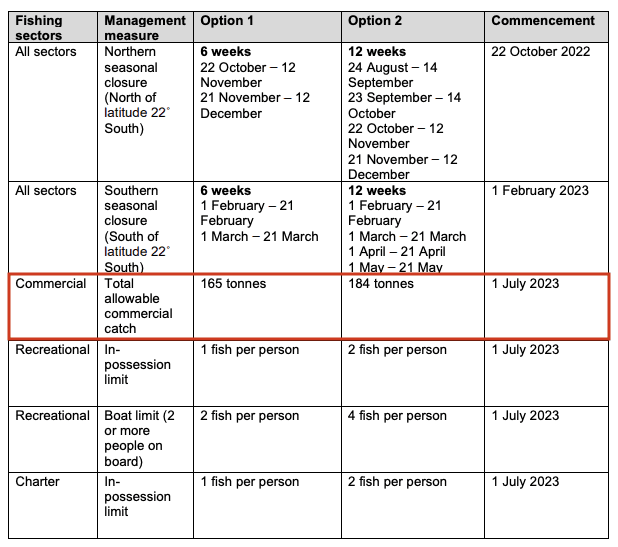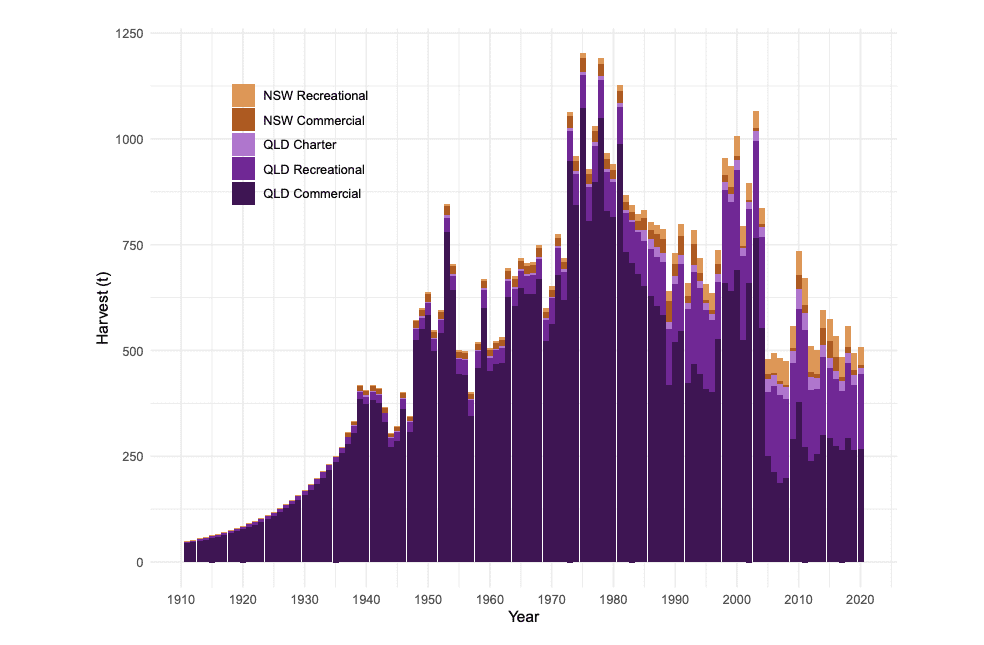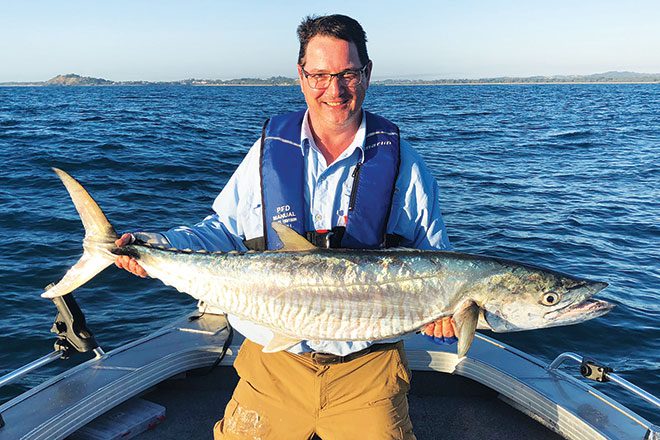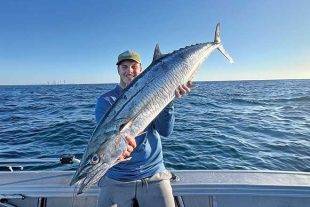Queensland’s peak seafood industry body has called on the State Government to halt its imminent drastic cuts to spanish mackerel catches for professional, charter and recreational fishers.
This follows the release of a draft independent scientific report questioning the fisheries department figures behind the planned catch cuts and saying the figures should not be used for management decisions.
Queensland Seafood Industry Association chief executive officer David Bobbermen said the catch cuts would cost professional fishers and seafood marketers millions of dollars over the next 12 months.
Mr Bobbermen said he had written to Fisheries Minister Mark Furner asking for the new east coast spanish mackerel total allowable commercial catch declaration to be withdrawn, as the information upon which it was based had been questioned by independent reviewers.
“The cuts should not go ahead until the Queensland Government has called in experts to completely review the work that Fisheries Queensland has carried out to come up with their catch cuts decision for the 2023-24 financial year,” Mr Bobbermen said.

“Fisheries Queensland is cutting the total allowable catch for professional fishers on the east coast from 578 tonnes this year to just 165 tonnes in the 2023-24 financial year.
“From Saturday, professional fishers will be allowed to catch less than one-third of the fish they caught this year.
“And now an independent analysis of the Fisheries Queensland figures has concluded the figures should be thoroughly re-examined.
“On the basis of what has been found, Fisheries Queensland is prepared to cause serious financial hardship to fishing families throughout the east coast.
“That’s not how our fisheries resources should be managed or primary producer livelihoods should be manipulated.”
Mr Bobbermen said QSIA had commissioned an independent analysis of the facts and figures behind the Fisheries Queensland spanish mackerel east coast stock assessment 2021 and the draft report had just been received.
The analysis was conducted by Simon Hoyle and Alistair Dunn – eminent fisheries scientists based in New Zealand – experienced with management of species such as mackerels and tuna.

The draft report said in part, “We find that the model shows signs of misspecification, with residual trends in the decadal CPUE – catch per unit effort – time series, age structure and length composition data, bias apparent in the estimated growth curve, and instability in model fits and the likelihood profiles.”
“These problems may largely be driven by the lack of recovery in the CPUE index after the large reduction in estimated catch from 2005.
“These issues should be resolved before the model is used for management advice.”
Mr Bobbermen said, “While the draft report is couched in scientific language, the bottom line is clear to anyone – what Fisheries Queensland has relied upon in reaching decisions about future spanish mackerel catches simply should not be used in its current form for management of the fishery.”
He continued that professional, charter and recreational fishers would be impacted by Fisheries Queensland’s planned catch cuts for spanish mackerel.
“While the total allow commercial catch will be slashed by more than two-thirds, recreational anglers will suffer similar cuts,” he said.
“The daily trip catch limit for anglers will be cut from three spanish mackerel per person or six per boat – when there are two or more anglers on board – down to only one per angler or two per boat.
“The catch for charter-boat operators will also be cut, significantly impacting their businesses.
“No-one in professional, charter or recreational fishing trusts the stock assessment behind the Fisheries Queensland spanish mackerel cuts.”
 Bush 'n Beach Fishing Magazine Location reports & tips for fishing, boating, camping, kayaking, 4WDing in Queensland and Northern NSW
Bush 'n Beach Fishing Magazine Location reports & tips for fishing, boating, camping, kayaking, 4WDing in Queensland and Northern NSW









Why has it taken so long for the Seafood Body to make this announcement?
At the 11th hour so to speak.
That graph obviously shows that the recreational fishes have very little affect and that largely the commercial fishes have shot themselves in the foot as always!
The seafood Body only cares about making money and if the stocks are not restored they will totally go out of business. Narrow short term minded idiots.
I have personally noted as a keen recreational Mackerel fisherman, less big fish than 10 or so years ago.
Limit the pros and maybe the Charter operators and yes, the recreational fishes too. but not so harsh on them.